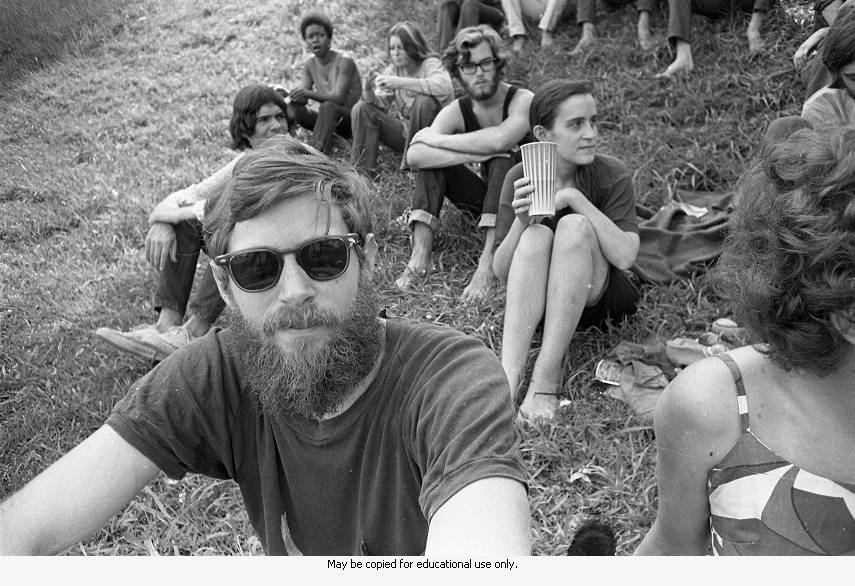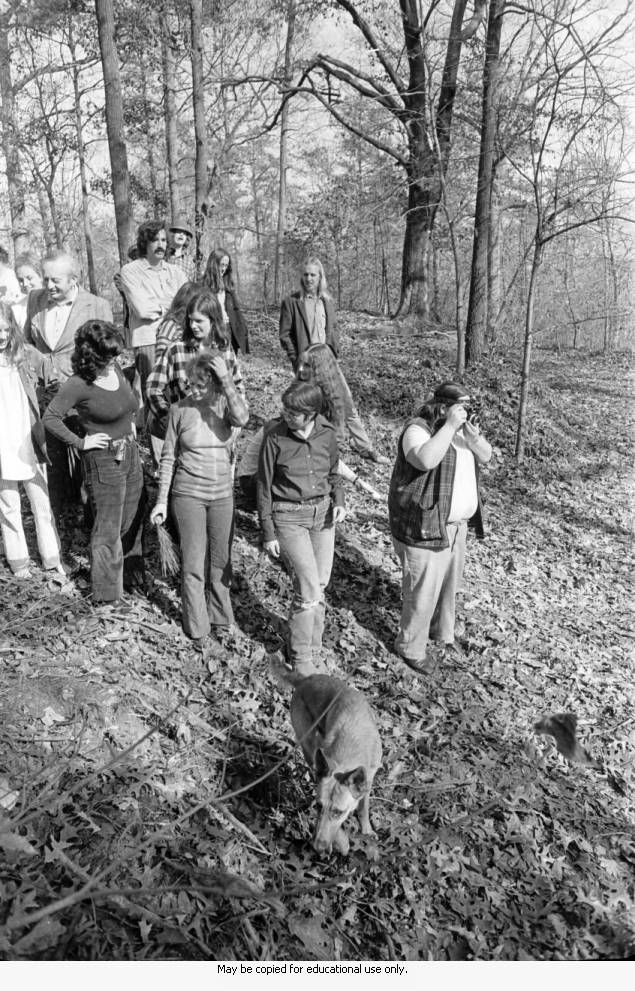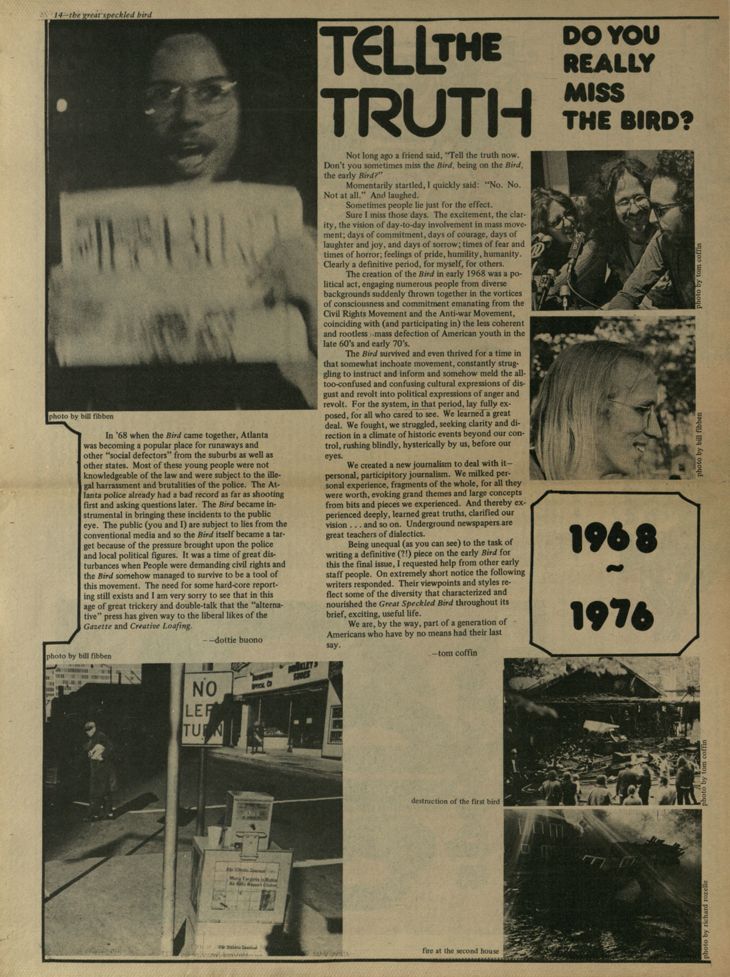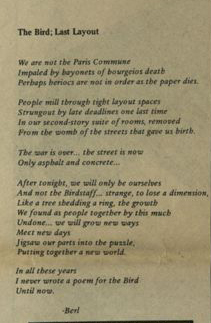The End of The Bird
Underground newspapers were often ephemeral, disappearing after only a few months. The Bird was an unusually long-lived paper, operating on a shoestring budget with the help of a wide array of volunteers. Its longevity could be attributed to a stable core of staff members who dedicated themselves to reporting on local politics, culture, and social justice issues. Nevertheless, The Bird also faced the same pressures other underground papers did, and this took a toll over time.
As the war in Vietnam ended, resources and public support for The Great Speckled Bird were decreasing. They began facing a multitude of issues. Harassment of staff and salespeople was commonplace, and they were targeted
both by members of the community and the police. Legal action was a common tactic used by cities to sap the money and resources of underground newspapers. For example, The Bird had to fight charges of obscenity for their
May 26, 1969, cover. Violent acts could also happen to underground newspapers as was the case when the second Bird House on Westminster Drive was firebombed in May of 1972. While The Bird continued to publish unabated, the fire destroyed much of the equipment they used to produce the paper and impacted its long-term financial health. In addition, longtime contributors sought different forms of work and activism. Artists were no longer submitting their work, and other local alternative newspapers were popping up causing it to lose its shock value. These papers also competed for limited advertising revenue. Publication fell from once a week to once a month to nothing at all. The Bird eventually disbanded in 1976.
“We created a new journalism to deal with
it—personal, participatory journalism. We milked personal experience, fragments of the whole, for all they were worth, evoking grand themes and large concepts from bits and pieces we experienced. And thereby experienced deeply, learned great truths, clarified our vision…Underground newspapers are great teachers of dialectics.”
While The Bird was alive, it unified revolutionary thinkers of Atlanta
who sought to find material solutions to racism, police brutality, sexism, homophobia, and war. Although its members moved on to different projects, they were better prepared from their time at The Bird.




